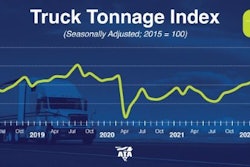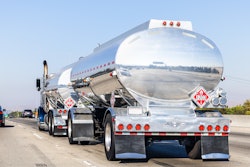Hurricane Ian is currently steaming toward Florida's west coast with an anticipated landfall as soon as Wednesday as a major storm, prompting Florida Gov. Ron DeSantis to issue a state of emergency, suspending hours of service regulations, along with certain size and weight restrictions in the state. Hurricane Ian is currently a Category 3 hurricane and is expected to strengthen as it moves across the Gulf of Mexico toward Florida.
Freight movement is among the many things caught in the upheaval of a serious weather event. Load posts and spot truckload rates usually surge when shippers anticipate the approach of a big storm.
Last year, during the last week of August and with Hurricane Ida on the way, the total number of van, refrigerated, and flatbed loads posted to the DAT network increased 10% while truck posts fell 4.3% week-over-week. New Orleans inbound van load volumes rose 5% week-over-week and outbound volumes increased 19%. Ida, a Category 4 hurricane, became the second-most damaging storm to make landfall in Louisiana, behind Hurricane Katrina.
Ken Adamo, DAT chief of analytics, noted there’s a common misconception that weather events impact outbound freight when it’s really not so much the case. When Hurricane Harvey made landfall in Houston in August 2017 near Port Aransas, it sent inbound and outbound rates in the Houston area skyward. Outbound loads normalized quickly, "within a week or so," Adamo noted, but inbound rates remained elevated through the rest of the year.
“We learned from the flooding in Houston several years ago that inbound volumes pick up immediately after the storm as supplies move in. Outbound volume waits a week or two as shippers slowly restart their operations," said Noel Perry, chief economist at Truckstop.com. "Since Florida is primarily inbound for dry van, this means little in relation to normal patterns. For reefer, the outbound truck type, the recovery could be delayed for more than two weeks if the storms damage the crops.”
Recovery efforts in the Sunshine State could be a boon to van and reefer spot rates that are about 43-cents and 28-cents lower, respectively, than contract rates, falling since January 2022, 33% and 26%, respectively, while contract rates decreased by 3.7% and 4.1%, according to DAT.
The Lakeland, Florida, market, which includes Tampa and Orlando, is typically imbalanced, with much more freight coming in than going out, Adamo said.









